Boko Haram abducted Chibok girls 10 years ago — Nigeria learned nothing from it
)
Before 2014, Boko Haram was already the world's third deadliest terrorist group, responsible for the two bloodiest attacks anywhere across the globe in 2013, according to the Global Terrorism Index.
The jihadists — targeting religious institutions, government buildings, businesses and security installations — had killed nearly 3,500 people in over 700 attacks and left nearly 2,000 wounded in its campaign of terror which started in 2009.
The Abubakar Shekau-led group even had international links to Al-Shabaab, with reports of funding and training collaboration between both terror organisations — so Nigerians were already familiar with Boko Haram's threat.
But the terror group's abduction of 276 schoolgirls from the Government Girls Secondary School in Chibok on April 14, 2014 was a turning point.
Why Chibok abduction was such a big deal
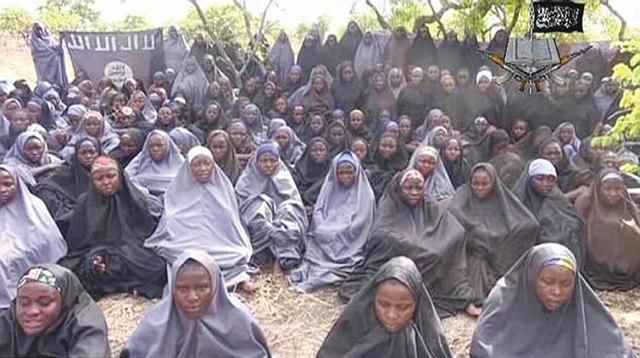
The school attack was one of the most direct statements of intent that matched the group's objective, wired into its name which translates to, "Western education is forbidden."
Just a few weeks before the attack, the group had invaded the Federal Government College of Buni Yadi, Yobe State, and brutally slaughtered 59 students, all boys, but the event never captured as much attention as Chibok.
"The way the Chibok attack was done — just in terms of the sheer scope, the audacity and how vulnerable the victims were — really stood out," Ikemesit Effiong, Partner and Head of Research at SBM Intelligence, tells Pulse Nigeria 10 years after the abduction.
"Children had always been victims of attacks in this country, but oftentimes, that's because they happened to be present where a particular incident took place, and not because they were specific targets," the analyst explains.
The reaction of the Goodluck Jonathan administration to the Chibok incident was poor — marked by passing the blame, alleging political theatrics, and even questioning the authenticity of the event. This naturally affected the security response, and the fate of 276 vulnerable schoolgirls dangled in the balance.
Their loved ones couldn't afford the same complacency, and the agitation for their return eventually birthed the Bring Back Our Girls campaign which blew up around the world, including notably in the White House where the then-first lady of the United States, Michelle Obama, protested with a cardboard.
![Michelle Obama demanded the return of Chibok girls [White House]](https://image.api.sportal365.com/process/smp-images-production/pulse.ng/27072024/7246b3cb-9e4d-47cd-80a9-ad9878eea252)
The notoriety of the Chibok event amplified Boko Haram's reputation even more in the international community and the group capitalised on this to further blackmail the Nigerian establishment, threatening to sell the girls into slavery.
The legacy of Chibok abduction
In the manner it played out, Chibok turned out to be a tragic proof of concept for Boko Haram and other non-state actors in how to get attention and hold the Nigerian state to ransom.
It took another four years, but Boko Haram struck again and kidnapped 111 schoolgirls, and two other primary schoolchildren, from the Government Girls' Science and Technical College in Dapchi, Yobe. The terror group released 107 of the students one month later, buried five of them who died in custody and held onto Leah Sharibu who refused to convert to Islam.
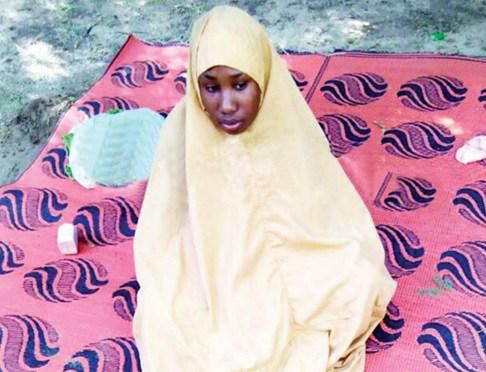
Dapchi opened the floodgates for similar incidents to follow. Boko Haram, or bandits operating in the North, carried out other mass school abductions in Kankara in Katsina where over 300 schoolboys were kidnapped in December 2020; Kagara in Niger where 21 students and teachers were kidnapped in February 2021; and Jangebe in Zamfara where over 300 students were kidnapped, also in February 2021.
As recently as March 2024, terrorists kidnapped 137 schoolchildren from Lea Primary School and Government Secondary School Kuriga in Kaduna, the first such incident under the President Bola Tinubu administration.
While many of the victims in these abductions made it back home to their loved ones, some also lost their lives during attacks or in captivity.
"The targeting of children in environments in which they're seen as vulnerable or being more easy targets is now an integral part of terrorists' strategy.
"We've gone from Chibok where it was an opportunistic attack to now where it's the attack of choice if you have guns and want to cause trouble in this country," Effiong notes.
The other lasting impact of the Chibok event was it made Nigerians feel ever more vulnerable, so much that security became one of the most important issues alongside the economy.
Why Chibok-level events keep happening
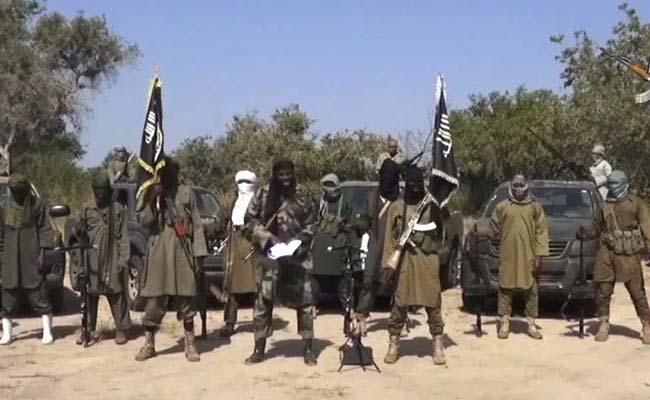
Boko Haram kick-started a trend that's still biting Nigeria after a decade, but what has sustained that industry, and the new players jumping on the bandwagon, is a manifestation of the government's many failures.
The worsening economic conditions have created fertile ground for non-state actors to recruit young people, especially boys, for their campaigns of terror. Convincing a young boy to pick up arms against the state is infinitely easier if the alternative is to play by the rules of a government that has failed to provide him with the basics for a prosperous future, especially education — Nigeria has the highest population of out-of-school children in the world.
"The poverty and the economic deprivation that we've had in the country has obviously been a big factor in a lot of these communities where these attacks occur. These are some of the poorest and most economically deprived places in Nigeria. It is actually more difficult in these communities to be pro-Nigeria," Effiong is quick to point out.
What has not changed about Chibok-level events
In 10 years, across three different administrations, terrorists have kidnapped young Nigerians in their pursuit of education. But a Jonathan-era template that has been sustained across all three governments is a defensive posture that primarily filters these events mostly through a political lens.
![Goodluck Ebele Jonathan and wife [Fashionpolice]](https://image.api.sportal365.com/process/smp-images-production/pulse.ng/27072024/8f8d043b-5e5a-45c1-8243-3586260e1bda)
Chibok was especially damaging for Jonathan because it happened when he was campaigning for a second term in office, and was ultimately a notable reason he lost to Buhari the following year. But despite his bullish stance before he assumed office, Buhari's administration suffered more Chibok-level events and that defensive posture always reared its ugly head. Effiong recognises this as problematic in the bigger scheme of things.
"A lot of the good common sense ideas which three administrations would have adopted to properly manage and address the issue have been put to the back-burner because security is now not a fundamental social issue we talk about but a political one."
The knock-on effect is that the government's response to Chibok-level events has been a mix of indifference and a clear lack of strategy. The mismanagement isn't much of a departure from how the Nigerian government typically manages everything else, but it stings nonetheless, especially due to how fatal it is for many and how disorienting the state of things is for the populace in general.
Chibok-level events constitute clear and present danger, but the government has failed in 10 years to coordinate a convincing response to safeguard lives and property. "Many schools in high-risk states are still vulnerable today and in the same state prior to the Chibok attack and they're sitting ducks," Effiong notes with frustration.
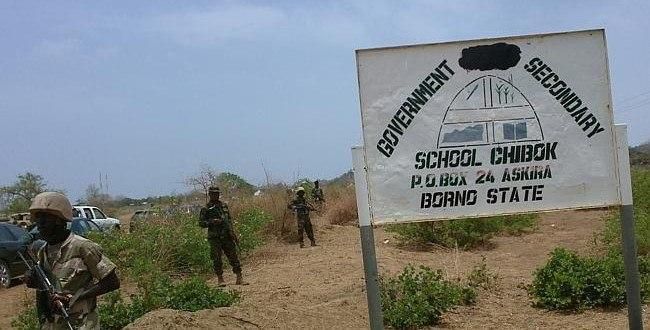
The consequences are staggering. Nigeria is a more fractured country, the politics is more polarised, and there's a general lack of faith in the government's capacity and willingness to address security challenges.
Parents not sending their children to school in high-risk states to prevent them from being abducted means the country is unintentionally creating a future generation that's less educated, and even more prone to resorting to criminality. Insecurity births more insecurity and that is fundamentally reshaping Nigerian society.
Effiong warns, "Things will only get worse as we continue to postpone any sort of real and effective option on this issue."
What happened to the Chibok girls?
While the 276 Chibok girls were being transported to Boko Haram's operational base in Sambisa Forest, 57 of them escaped by jumping off the trucks and running into the forest before making their way back home.
Buhari, who made the retrieval of the girls a major part of his victorious 2015 election campaign, negotiated with Boko Haram to release some of the girls — 21 of them in October 2016, and 82 more girls in May 2017, in exchange for a €3 million ransom and the release of five Boko Haram commanders.
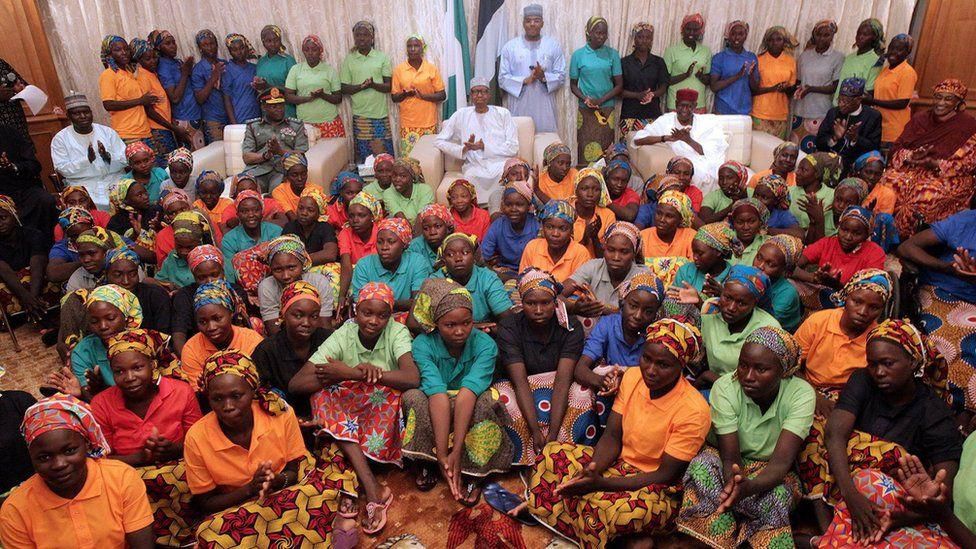
Over a dozen more of the girls have separately been found or escaped from the terror group since then, but 91 of them are still unaccounted for 10 years later.
Some of them were married off to Boko Haram fighters and had children for them, others have continued to pursue their education within and outside the country, and some others have simply withdrawn from society due to their traumatic experiences.
How to prevent the next Chibok-level event
When Chibok happened 10 years ago, the world lost its mind. But school abductions that have happened in the past few years have struggled to sustain mainstream attention for more than a few hours — the shock value has disappeared. How does the government begin to undo years of security mismanagement that has trapped the country in an inescapable loop of tragedy?
The Tinubu administration is still in its first year and has a lot of room to do things differently, starting with the political will to accept there's a problem and building the capacity to figure out useful solutions not polluted by political distractions.
![Bola Tinubu campaigned for the return of Chibok girls in 2014 [BAT]](https://image.api.sportal365.com/process/smp-images-production/pulse.ng/27072024/d403bfae-eda3-4ba0-9982-79581ac5edec)
The security services must do better with strategic and operational cooperation, backed by adequate resources from the government, especially regarding weaponry and training, and how best to cultivate and utilise intelligence.
Investment is also needed in forensic financial accounting and investigations to make it easier to follow the money and prosecute the financiers of terrorism who have remained anonymous despite how large their shadows loom.
In general, the government must create an effective security architecture and use that to build trust with Nigerians as credible partners. This is in addition to fulfilling its other responsibilities which would create a more conducive economic environment that benefits the common masses and disrupts the recruitment pipeline for non-state actors.
"Every other thing in terms of sophisticated solutions will be built on this fundamental framework," Effiong notes.
If Nigeria does not become more serious now, already 10 years too late, about effectively dealing with the problem, nothing will stop the next Chibok event from happening tomorrow. That's a real tragedy.

![Aisha blows hot on Security forces; Y7ou won't believe what she said [VIDEO]](https://image.api.sportal365.com/process/smp-images-production/pulse.ng/17082024/1f976edf-1ee2-4644-8ba1-7b52359e1a8f?operations=autocrop(640:427))
)
)
)
![Lagos state Governor, Babajide Sanwo-Olu visited the Infectious Disease Hospital in Yaba where the Coronavirus index patient is being managed. [Twitter/@jidesanwoolu]](https://image.api.sportal365.com/process/smp-images-production/pulse.ng/16082024/377b73a6-190e-4c77-b687-ca4cb1ee7489?operations=autocrop(236:157))
)
)
)
)
)
)
)
)
)
)
)